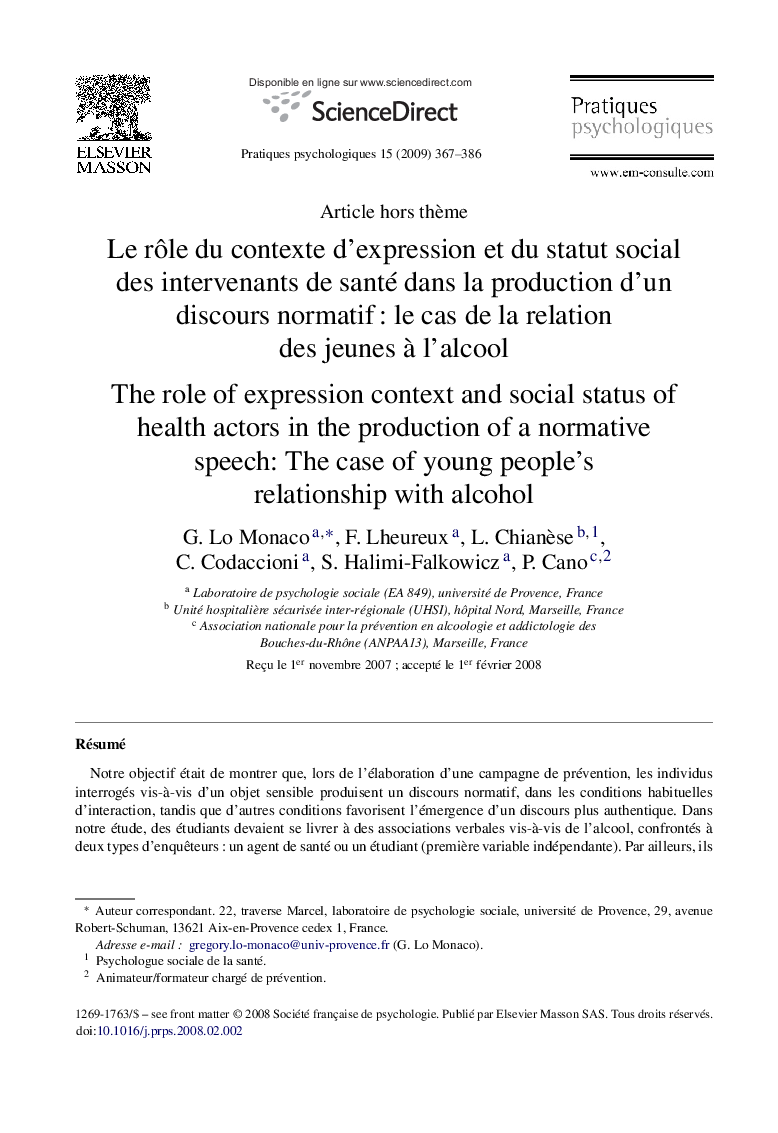| Article ID | Journal | Published Year | Pages | File Type |
|---|---|---|---|---|
| 893725 | Pratiques Psychologiques | 2009 | 20 Pages |
RésuméNotre objectif était de montrer que, lors de l’élaboration d’une campagne de prévention, les individus interrogés vis-à-vis d’un objet sensible produisent un discours normatif, dans les conditions habituelles d’interaction, tandis que d’autres conditions favorisent l’émergence d’un discours plus authentique. Dans notre étude, des étudiants devaient se livrer à des associations verbales vis-à-vis de l’alcool, confrontés à deux types d’enquêteurs : un agent de santé ou un étudiant (première variable indépendante). Par ailleurs, ils devaient s’exprimer soit en leur nom propre, soit comme le feraient les étudiants en général (seconde variable indépendante). Conformément à nos attentes, les résultats montrent que, face à un acteur de santé et lorsque les étudiants s’expriment en leur nom propre, le discours produit vis-à-vis de l’alcool traduit une vision « pro-santé » (prise en compte du risque alcool). Les implications de ces résultats, concernant notamment la préparation des actions de prévention, sont discutées.
The objective of this research is to show that, under usual conditions of interaction between an agent of health and of its public intervention, the individuals produce a “pro-health” speech which can lead astray this agent, concerning the representation which they have of alcohol. Students, producing verbal associations about this object, were confronted either with an agent of health or with a student, and were speaking either for themselves or as the students would do in general. The results show that the individuals, placed in front of an agent of health and directly implied in the beliefs that they express, tend to adopt the speech wished by this agent. However, this manifest adhesion only appears to be circumstantial, insofar as the speech of the individuals is different when they are expressed vis-a-vis a member of its group and in the name of this one. The implications of these results with regard to the interventions of prevention are discussed.
